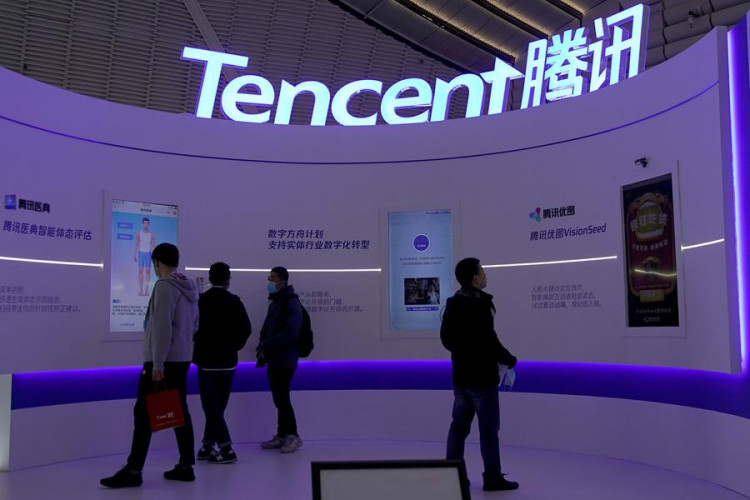Tencent has warned more regulations are expected to come for China's internet sector but said it is optimistic it can comply with the law.
The comments were made after the Chinese tech company topped market estimates to report a nearly 30% increase in profits for the second quarter this year, as China augments its regulatory inquiry of the nation's major internet companies.
China's biggest tech company reported its sluggish pace of quarterly revenue growth since 2019, highlighting the effect of regulatory scrutiny, including on the educational tech sector, a big source of revenue.
Tencent disclosed Wednesday its revenue climbed 20% to 138.4 billion yuan ($21.4 billion) for the quarter ended June, compared to the same period in 2020, while profit was up 43 billion yuan ($6.7 billion), CNN Business reported.
The company should expect more regulations to come in the near future, Tencent President Martin Lau said during Wednesday's earnings call.
Lau pointed out that online regulation is a "worldwide trend," but China is making more headway than the U.S. and Europe in terms of executing a more structured regulation.
Tencent stock, which trades over the counter in New York, soared 3.8%, to settle at 57.20 on the stock market on Wednesday.
Propelled by its highly in-demand messaging WeChat app, Tencent is China's leader in payment services and online messaging. It's also a leading provider of online gaming and has a growing business in Cloud computing. Its main rivals are Alibaba and JD.com.
Tencent has so far eluded the most rigid scrutiny faced by competitors like Alibaba, which was recently slapped with a record $2.8 billion penalty after regulators concluded the e-commerce giant had behaved like a monopoly.
While Tencent itself is not the primary target of any investigation, the tech group's massive clout in the modern Chinese economy has made it vulnerable as the clampdown quickly included e-commerce, antitrust, data security, and web content.
Tencent has shed more than $400 billion in market value after China's regulators penalized the internet sector with stiff fines, new policies, and directives to restructure parts of their operations.
For Lau, he believes regulators are bent on "correcting industry misbehaviors" and underscoring social responsibility. But ultimately, the main objective is a long-term sustainable development of the country's internet industry, he said.





